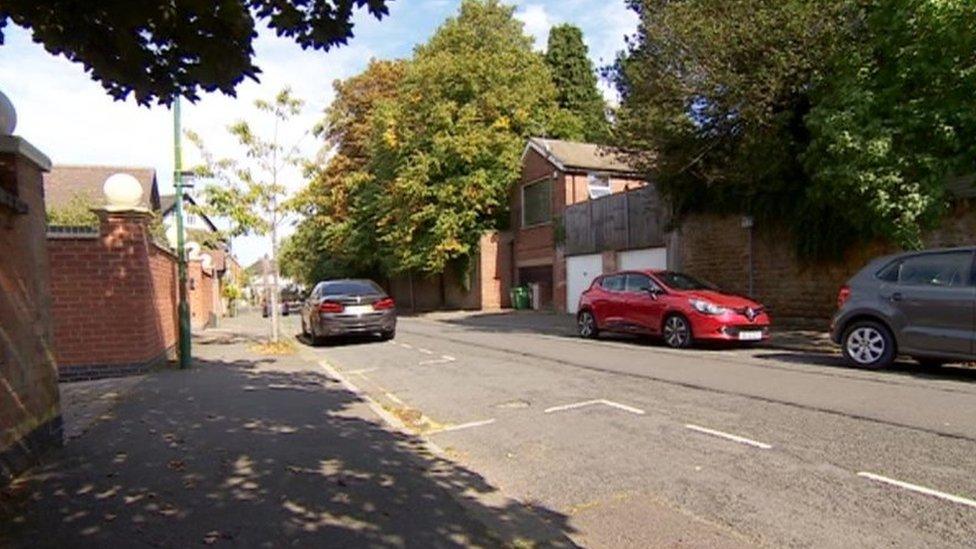Coronavirus: 'Don't blame it all on us' say Nottingham students
- Published
Student Imogen Hullis has made a video diary of life in isolation
As coronavirus cases continue to rise in Nottingham, which now has the highest rate in England, some have pointed the finger of blame at the city's students.
The city's director of public health, Alison Challenger, has said three-quarters of the 2,532 new positive cases in the city in the past seven days have been among people aged 18 to 22.
Rates have risen across the city, but are steepest in areas with high student populations.
The highest number of cases is in University Park, Lenton Abbey and Jubilee Campus, where many of the city's 50,000 students live.
But students living there said it was unfair to pin the rise just on them.
Lenton made headlines last month when a student was fined £10,000 for hosting a party in the area.
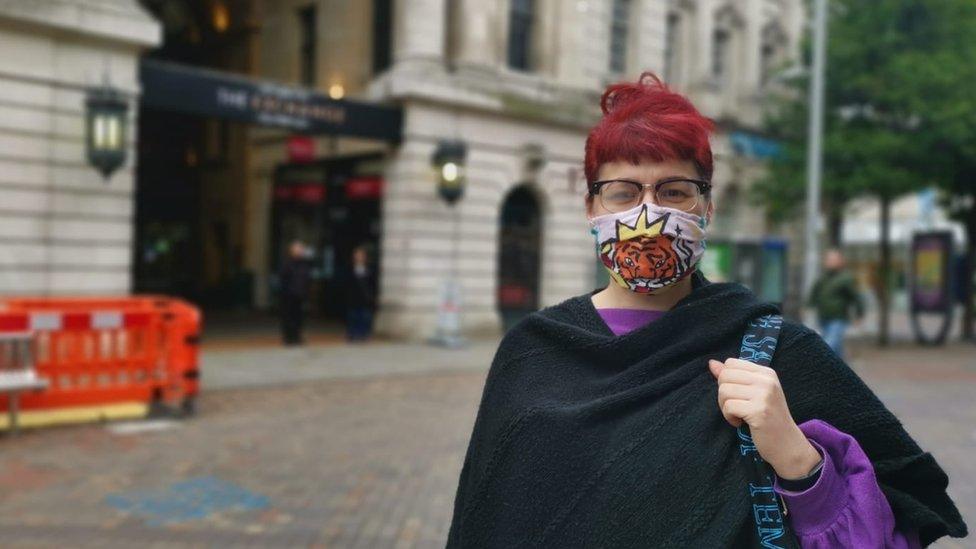
Emma Yeah said the presence of students in the city was like 'Covid soup'
Mapperley resident Julie Pinnock, 60, said: "It's students [that have caused the rise].
"I feel awful saying it, because everyone is, but you can't help but think bringing all those young people here for university is what did it."
Annette Clay, who runs a flower stall in the city centre, said: "They should have left them at home until after Christmas."
And Emma Yeah, 33, said having the students back was like "Covid soup".
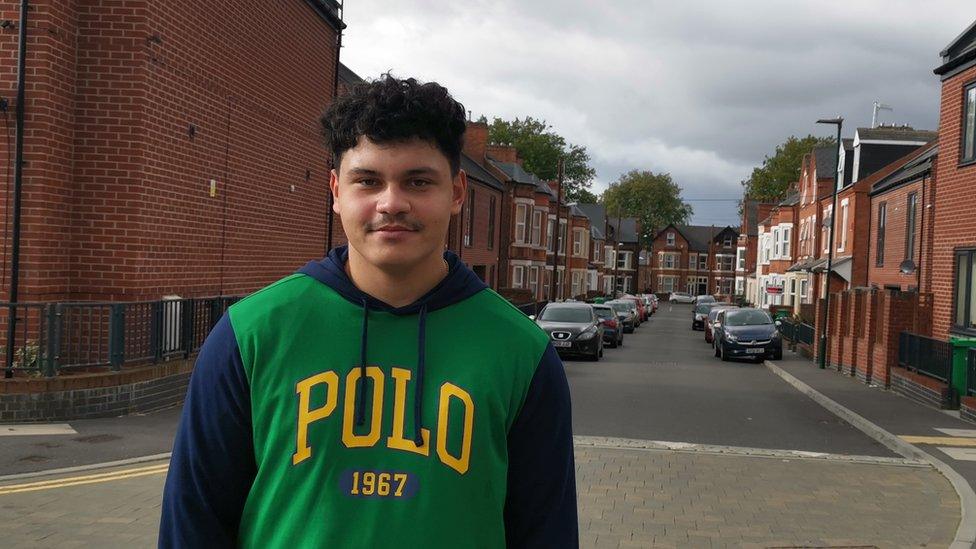
Mr Edwards said the rising cases was making him even more aware of the need to be careful
But some students have said they are being made scapegoats for the rise in the city.
Matthew Edwards, a 20-year-old environmental science student at the University of Nottingham (UoN), said: "There has to be some sort of correlation, but we're not responsible for all the new cases.
"I know the stereotype is that we do not care about the area as we don't live here [year-round], but I don't think that's true.
"I've always been pretty cautious about meeting up with people and, because of the increased rates, I've accepted we can't really meet how we used to.
"We're human too. Pinning all the blame on us is wrong - that's scapegoating us."
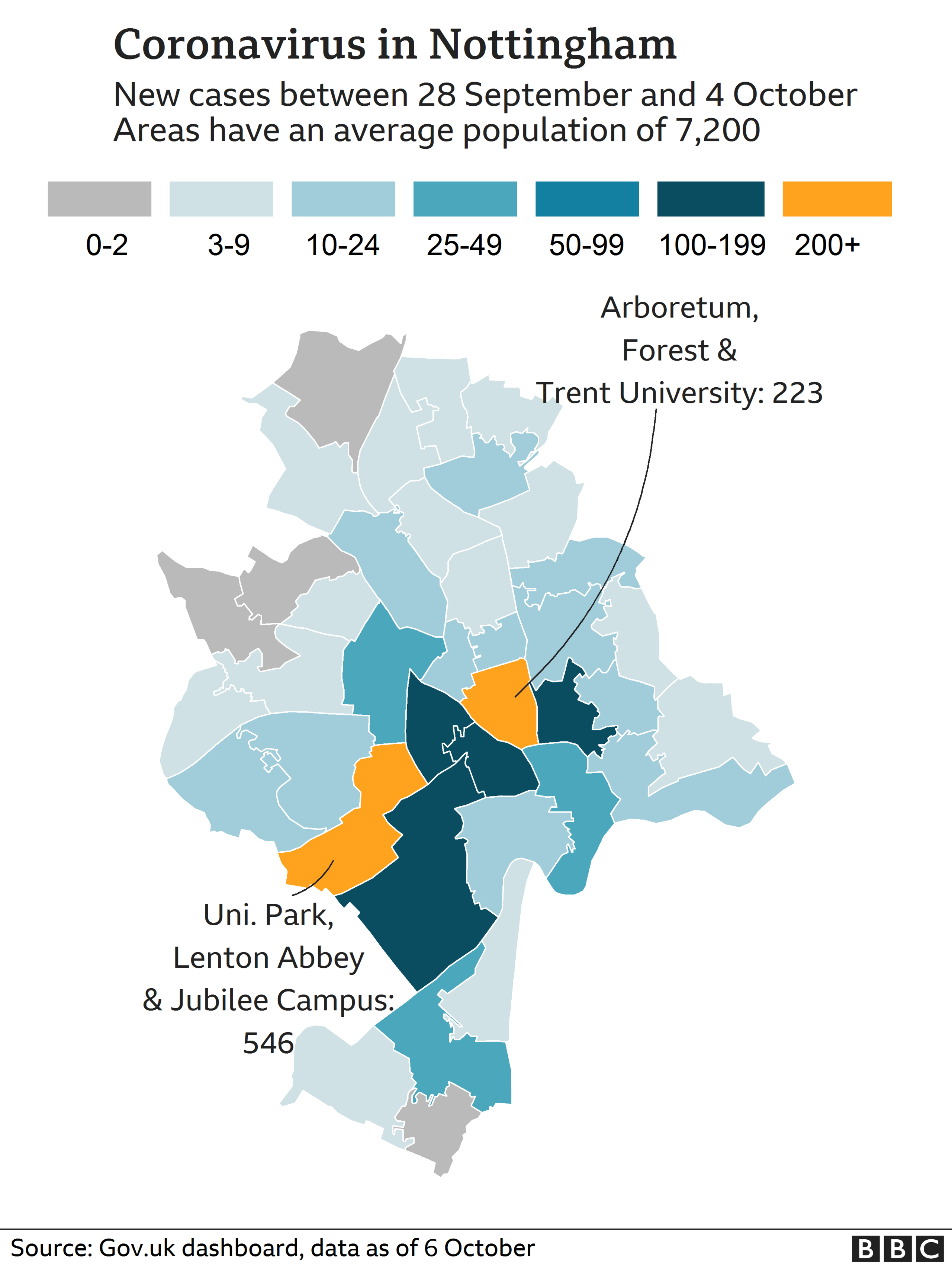

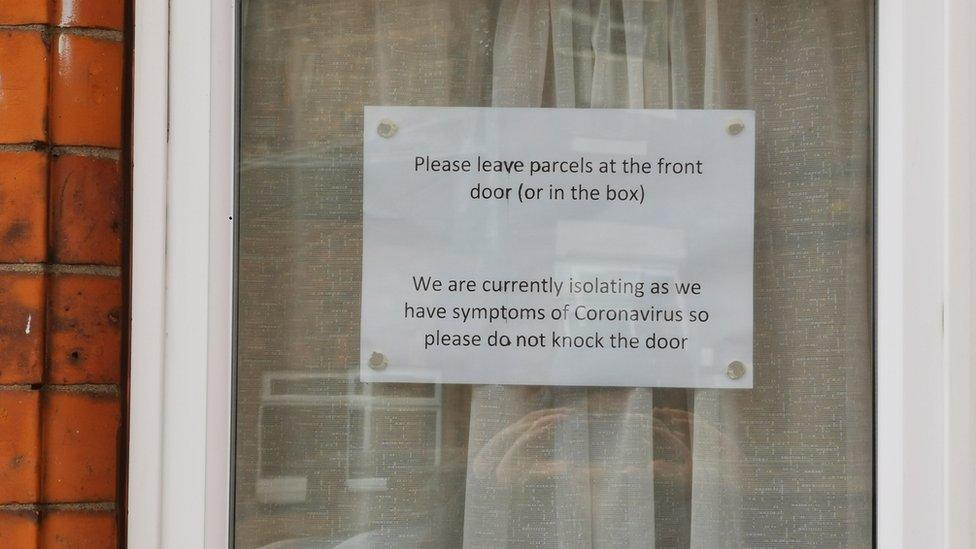
Many students told the BBC they were self isolating
Rosa Hodgkinson, a second year geography student at UoN, said she felt most students were following the rules.
She added: "I think it's very easy to blame us but we're just doing what the government has told us to do.
"The government put us here, left us on our own and is now threatening to not let us go home for Christmas."
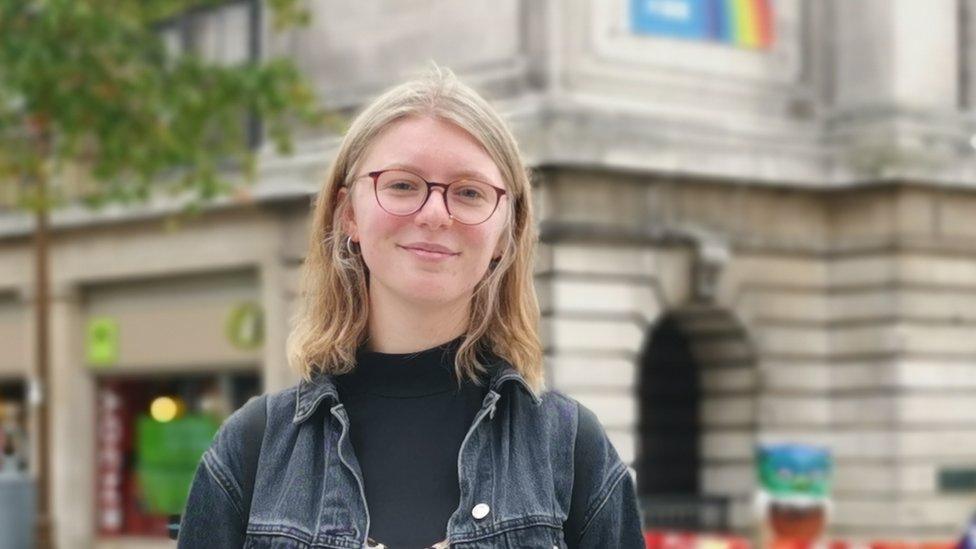
Rosa Hodgkinson said most students are taking the pandemic seriously
Rhiannon Brown, a 19-year-old psychology student at Nottingham Trent, is currently having to self-isolate despite following government guidelines.
She said: "The government knew what it was doing when it sent us back. I felt like we were told to.
"It's not our fault it's spreading."
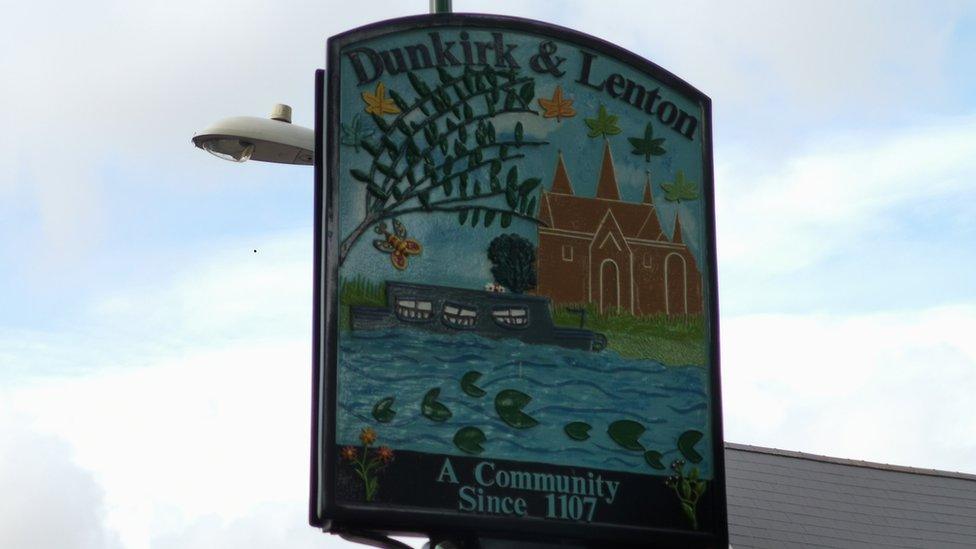
The Lenton area of Nottingham is popular with students
Nottingham City Council has previously said the return of students to the city has "undoubtedly" been a factor behind the rise in cases.
UoN is currently running its own testing programme for Covid-19, picking up cases among students and staff even if they have no symptoms.
The council said this explained some of the rise in cases, but not all.
Data for the week to 4 October shows 546 cases recorded in the University Park, Lenton Abbey and Jubilee Campus area and 223 in Arboretum, Forest and Trent University.
'Scared'
David Mellen, the council leader, said there were "questions to be asked" about why students were told to return.
But he added there had been "substantial" rises in all areas and age groups across the city, not just within the student population.
The UoN Student Union has recognised "it has not been possible to contain the infection within the student community".
In an open letter it said some of its members felt "scared", "unfairly targeted for enforcement rules" and "angry at those who blame [students] for... a predicted and avoidable scenario".
It laid the blame at the door of the government for allowing universities to reopen, but failing to then offer support or leadership.
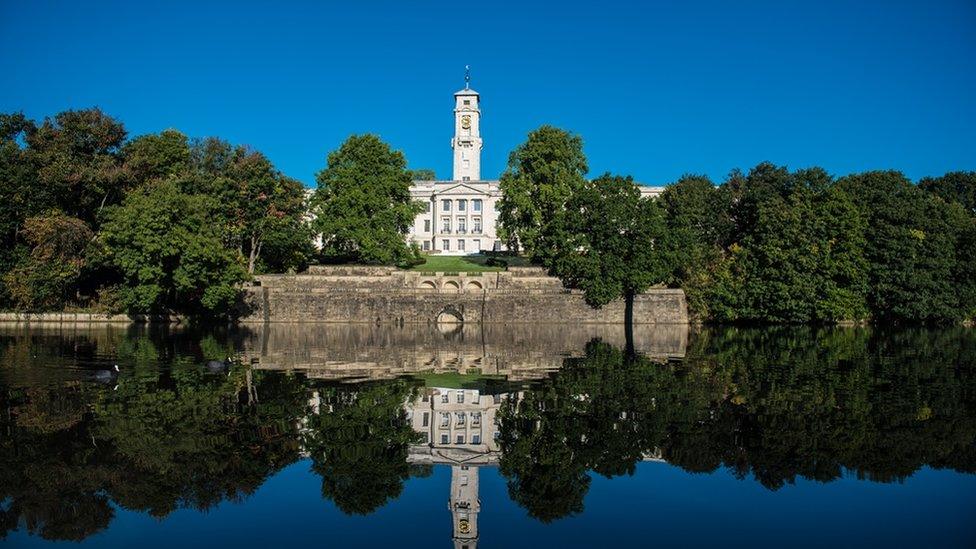
UoN said the decision to reopen had been the government's and it had worked "hard" to make sure it was as safe as possible
A spokeswoman for the Department for Education said: "We understand this has been a very difficult time for students which is why we prioritised their education and wellbeing, so young people's lives are not put on hold.
"We have supported universities to provide a blend of online and in-person, learning in a Covid-secure way this term."

SOCIAL DISTANCING: What are the rules now?
SUPPORT BUBBLES: What are they and who can be in yours?
FACE MASKS: When do I need to wear one?
TESTING: What tests are available?


Follow BBC East Midlands on Facebook, external, Twitter, external, or Instagram, external. Send your story ideas to eastmidsnews@bbc.co.uk.
- Published9 October 2020
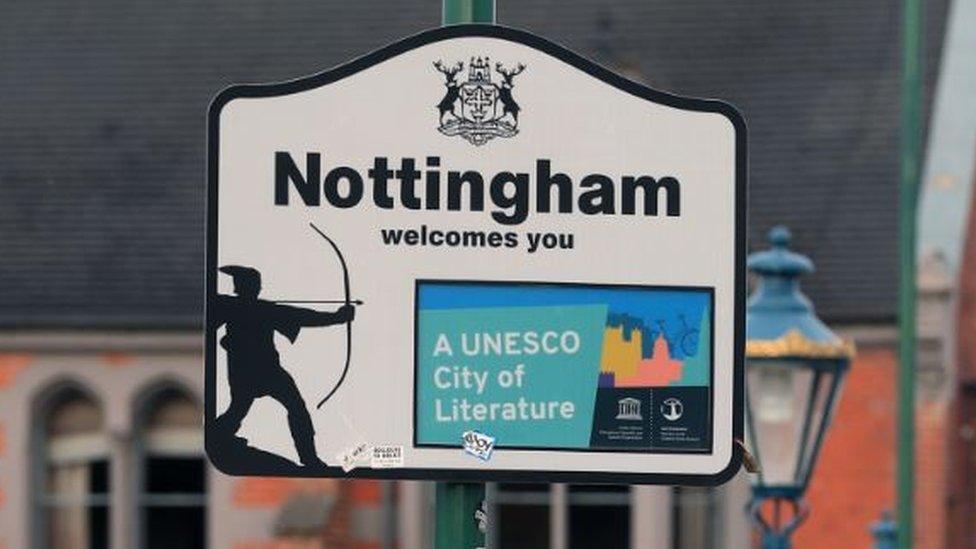
- Published5 October 2020

- Published13 September 2020
